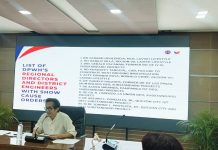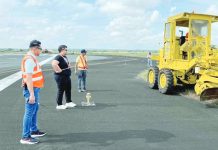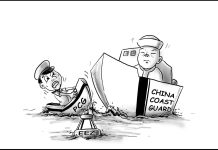
PRESIDENT Ferdinand R. Marcos Jr.’s signing of the Accelerated and Reformed Right-of-Way (ARROW) Act marks a pivotal moment in the nation’s ongoing struggle to balance two imperatives: the urgent need for infrastructure and the equally pressing duty to protect property owners’ rights. For decades, right-of-way (ROW) issues have been among the thorniest obstacles to public projects, leading to delays, ballooning costs, and sometimes outright abandonment of roads, bridges, flood control systems, and mass transit lines. With ARROW, the government promises speed, fairness, and transparency. But as always, the true test lies in the implementation.
Under Philippine law, the government has the power of eminent domain – the authority to acquire private property for public use, provided just compensation is paid. Previously, the law aimed to streamline this process; however, loopholes and bottlenecks persisted. Landowners often complained of undervaluation and delayed payments, while contractors blamed unresolved ROW disputes for stalled projects. The result: taxpayers paying more, commuters enduring longer waits, and communities left with half-finished infrastructure.
The ARROW Act seeks to change this narrative. It introduces reforms to accelerate acquisition proceedings, sets clearer valuation standards, strengthens resettlement and livelihood assistance for displaced families, and enhances transparency in negotiations. Importantly, it recognizes that development cannot come at the expense of fairness. Progress that tramples on citizens’ rights is not progress at all. It is a disguised form of injustice.
At its core, ARROW acknowledges a simple but powerful truth: the state’s duty to modernize infrastructure is inseparable from its obligation to respect the dignity and property of its citizens. A widened road or a new railway may benefit millions, but it must not come at the price of dispossessing families without due process or adequate compensation. The balance between public welfare and private rights is delicate, but it is precisely in this balance that the measure of just governance is found.
Yet laws, no matter how well-intentioned, are only as strong as their enforcement. Transparency in land valuation must not become another bureaucratic slogan but a lived reality. Compensation must not be delayed through endless administrative wrangling. Communities affected by projects must not be treated as obstacles but as partners whose rights deserve respect. The Arroyo, Aquino, Duterte, and now Marcos administrations have all promised to “fix ROW problems.” ARROW must prove that this time, promises will translate into action.
For citizens, vigilance remains essential. Landowners must be informed of their rights under the new law. Civil society must monitor both valuation processes and resettlement programs to ensure compliance. Courts, too, must act with dispatch when disputes inevitably arise.
The passage of the ARROW Act is a hopeful sign. If implemented faithfully, it can speed up the long-awaited modernization of infrastructure while upholding justice for those directly affected. But if neglected or corrupted, it risks becoming another empty acronym in the alphabet soup of reforms.
Development must never be measured solely in kilometers of concrete laid or bridges built. It must also be measured in fairness, in trust, and in the confidence of citizens that progress need not sacrifice justice. On this path, ARROW points the way – but it is up to government and people alike to ensure it flies straight./PN







